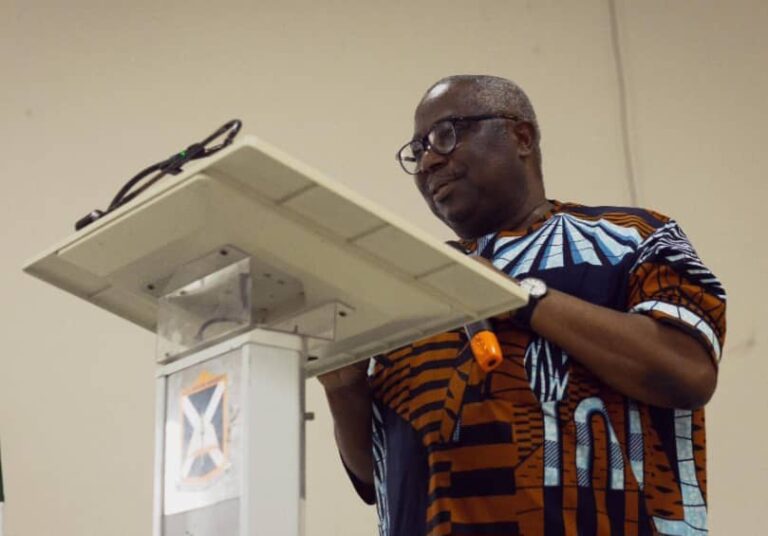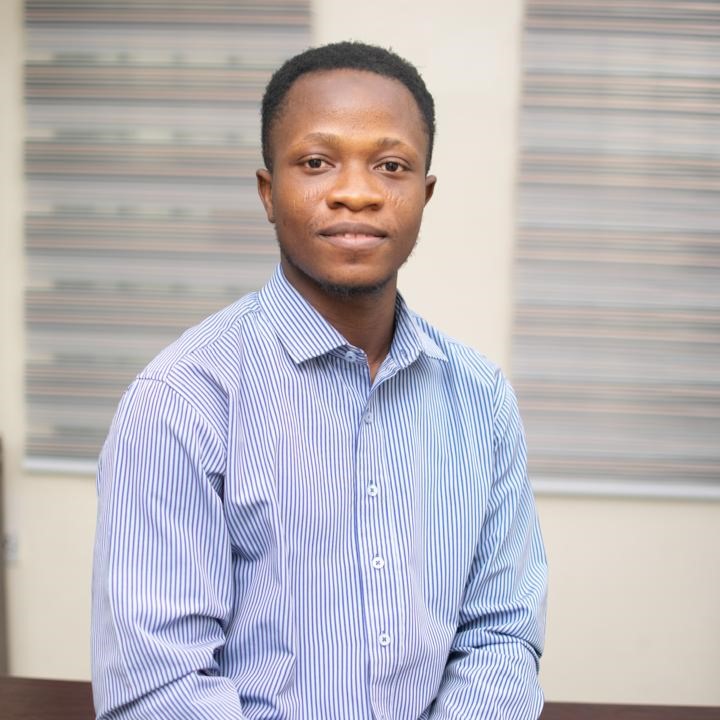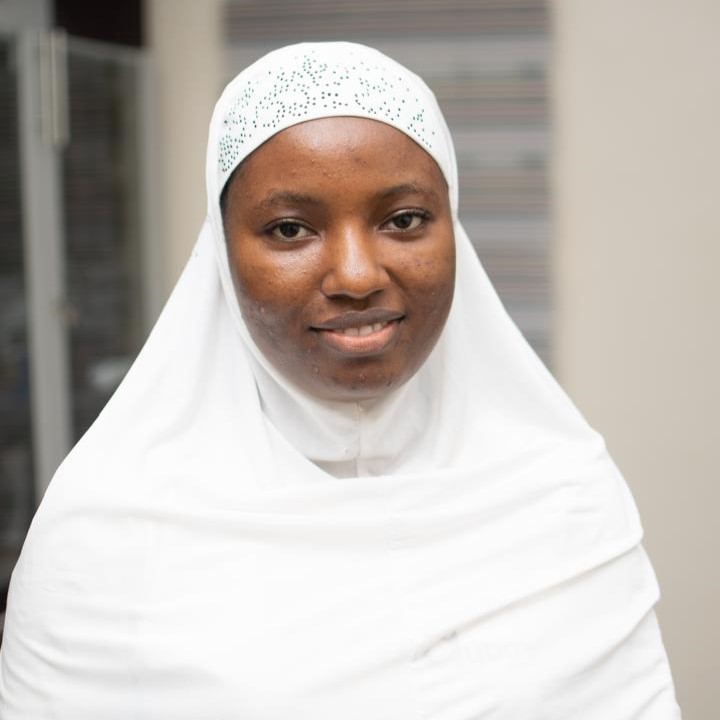The founder of Centre for Journalism Innovation and Development (CJID) and publisher of PREMIUM TIMES newspaper, Dapo Olorunyomi, has called on the Nigerian media to strengthen its watchdog, gatekeeping, and agenda-setting roles to safeguard democracy from the corrosive effects of disinformation, populism, and political polarisation.
Delivering a lecture titled: “The Democracy–Journalism Interface,” at a virtual event to officially onboard DevReporting’s editorial and technical advisors, Mr Olorunyomi warned that democracy can only thrive when the press is free, independent, and committed to truth, accuracy, and public accountability.
“A free and independent press is a vital part of the institutional mix. Its duty is to guard the public interest and protect it from incompetence, corruption, and disinformation.”
He described democracy as a journey requiring the active participation of citizens, political institutions, and the media, noting that under autocratic regimes, journalists often face severe constraints that erode democratic values.

Earlier in his remark, the Team Lead of DevReporting, Mojeed Alabi, commended the organisation’s key stakeholders for their support, reaffirming the platform’s commitment to advancing journalism in Nigeria and strengthening development reporting across Africa.
Watchdog mandate
Citing constitutional provisions from Nigeria, Ghana, Sierra Leone, Liberia and The Gambia, among others, Mr Olorunyomi emphasised that press freedom is not just a right but a constitutional responsibility to hold governments accountable.
The watchdog role, according to him, requires the press to provide oversight over the different sectors of society, including leaders within the private and public domains, adding that journalists are expected to guard the public interest and protect it from incompetence, corruption, and disinformation.
“In countries with a free press tradition, journalism actively promotes transparency and accountability using the legal instruments of treaties, statutes and case law as its shield. Under autocracies, journalists often face serious constraints and obstacles which invariably degrade the democratic quotient,” Mr Olorunyomi said.
He cited a landmark case of Tony Momoh versus the National Assembly as an example of judicial support for media oversight, stressing that journalism’s role in promoting transparency is backed by treaties, statutes, and case laws.
Gatekeepers and agenda-setters
As gatekeepers, he argued that the media must create a public square for informed debate, especially during elections, focusing on policies rather than personality politics.
“A dutiful gatekeeping role results in an empowered and informed citizenry, able to hold their government in check. Gatekeeping also serves three other roles: educates citizens; facilitates rational debate; and builds informed public opinion.”
Speaking further, the media expert stated that as agenda setters, the press typically functions to raise awareness of social problems by letting elected officials be aware of issues of public concern by highlighting vital issues, such as major disasters, conflicts, or humanitarian crises in need of urgent governmental action.
“It is important to make a distinction between the media agenda compared with the public agenda and the political agenda,” he added.
The fog of democracy
Mr Olorunyomi warned against the “fog” enveloping modern democracy, fuelled by post-truth politics where falsehoods overwhelm facts.
He noted that the free flow of information allows for the purveyors of post-truth to overwhelm citizens with so much false data that the truth can no longer be discerned.
Quoting Moisés Naím’s “The Revenge of Power,” he described a “journalistic dysfunction” in which “bad information systematically drives out the good.”
Beyond observer status
Reaffirming the profession’s ethical foundation, Mr Olorunyomi listed truthfulness, effective verification, independence, public purpose, accountability, minimising harm, transparency, and community engagement as the bedrock of credible journalism.
Mr Olorunyomi concluded that the media is not merely a chronicler of events but “a builder” and “an active participant” in shaping democratic society.
“The media fraternity is more than just a critical observer of history in the making. At least in our young democracy, it contributes not merely by being a watchdog. It is a builder; it is an active participant,” he quoted Nelson Mandela.
He affirmed his commitment to supporting the mission behind the establishment of DevReporting, encouraging the advisors and other stakeholders in both the academia and media to see their roles as central to the organisation’s mission of development-focused accountability journalism.
“DevReporting is a great promise of what we always hope great reporting will try to do,” he said.
Advisors pledge support to DevReporting
At the event, DevReporting formally onboarded distinguished individuals into various strategic roles.
As Editorial Advisors, the platform welcomed Mr Olorunyomi; Veteran Broadcaster, Bimbo Oloyede; Chief Executive Officer of Women Radio 91.7FM, Toun Okewale-Sonaiya, and CEO of The Star Newspapers, Ayodele Ojo.
Serving as Technical Advisors, the platform onboarded the Network Communications Manager, Moving Minds Alliance, Lola Ayanda; a medical practitioner and communications expert, Noimot Balogun; Copy Editor, Integrated Indigo, Akeem Akinniyi; Multimedia Expert, Oba Adeoye, and Executive Director, Distinct Right Media, Tobi Fayelu.
As Ombudsmen, the Executive Director, International Press Centre (IPC), Lanre Arogundade; Executive Director, Media Career Development Network, Lekan Otufodunrin; Executive Director, Wole Soyinka Centre for Investigative Journalism (WSCIJ), Motunrayo Famuyiwa-Alaka; and Partner at Koyen-Hi Kebonkwu Chambers, Mike Kebonkwu, were brought on board to provide oversight and accountability.
Joining as members of the Editorial Board are Ismail Ibraheem, a professor at the University of Lagos; Taibat Lawanson, a professor at the University of Liverpool; Shuaib Iwasa, a professor at Erasmus University Rotterdam, Netherlands; and Chijioke Uwasomba, a professor of Literature at Obafemi Awolowo University.
Taking turns to speak at the event, the newly onboarded advisors pledged their unwavering support for DevReporting’s mission.



